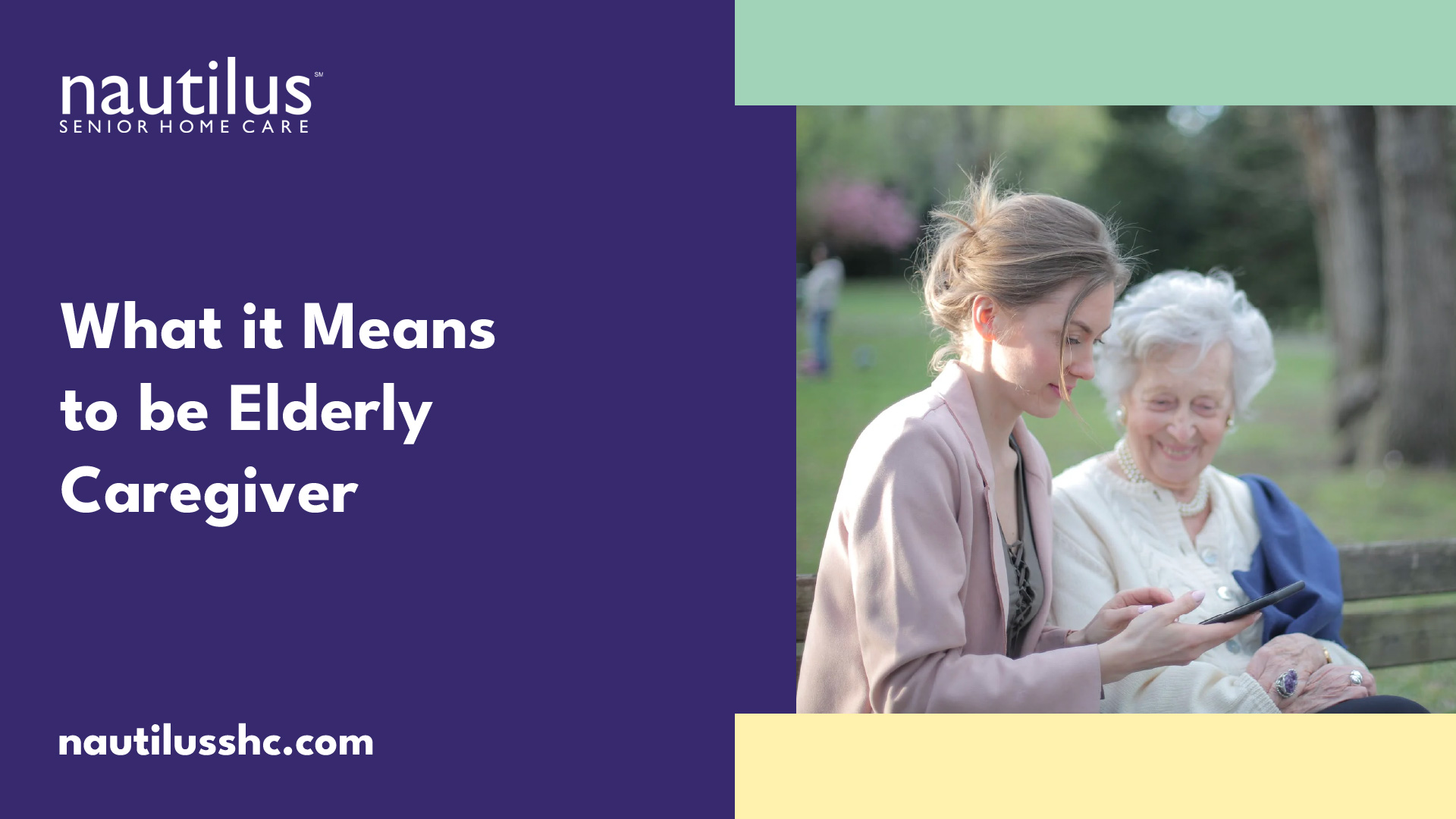The Role of an Elderly Caregiver
Being an elderly caregiver is a significant and meaningful role that involves providing physical, emotional, and practical support to older adults. It requires compassion, patience, and a deep understanding of the unique needs and challenges faced by the elderly. In this section, we will explore the importance of elderly caregivers and the responsibilities they undertake.

Understanding the Importance of Elderly Caregivers
Elderly caregivers play a crucial role in the lives of older adults, ensuring their well-being, comfort, and quality of life. They provide essential assistance with daily activities, such as personal hygiene, medication management, meal preparation, and mobility support. Additionally, caregivers offer emotional support, companionship, and a sense of security to the elderly individuals they care for.
The presence of a dedicated caregiver can significantly enhance the overall health and happiness of older adults. It allows them to age in place, maintaining their independence and dignity. Caregivers also act as advocates, ensuring that the needs and wishes of the elderly individuals are respected and fulfilled.
The Responsibilities of an Elderly Caregiver
The responsibilities of an elderly caregiver are diverse and multifaceted. While specific tasks may vary depending on the individual needs of the elderly person, some common responsibilities include:
- Personal Care: Assisting with activities of daily living, such as bathing, dressing, grooming, and toileting.
- Medication Management: Ensuring that the elderly individual takes their medications as prescribed and managing any necessary medical appointments.
- Meal Preparation: Planning and preparing nutritious meals that cater to the dietary requirements and preferences of the elderly person.
- Mobility Assistance: Providing support with walking, transferring, and using mobility aids, if necessary.
- Household Management: Taking care of household chores, such as cleaning, laundry, and grocery shopping, to maintain a safe and comfortable living environment.
- Emotional Support: Offering companionship, active listening, and engaging in meaningful conversations to address the emotional needs of the elderly individual.
- Safety and Security: Ensuring the safety of the elderly person by identifying and minimizing potential hazards and creating a secure living environment.
By taking on these responsibilities, elderly caregivers make a positive impact on the lives of the older adults they care for. They contribute to their overall well-being, promote independence, and provide a sense of stability and comfort.
Understanding the importance and responsibilities of being an elderly caregiver is essential for anyone considering or currently fulfilling this role. It helps cultivate empathy, patience, and a deep appreciation for the vital work caregivers undertake in supporting and enhancing the lives of older adults.
Emotions and Challenges of Elderly Caregiving
Being an elderly caregiver is a role that comes with a range of emotions and challenges. It requires a delicate balance of emotions and compassion, as well as the ability to navigate through various physical and emotional challenges.
Balancing Emotions and Compassion
As an elderly caregiver, it is essential to strike a balance between your emotions and compassion. Caregivers often develop strong emotional bonds with the individuals they care for, which can bring both joy and sadness. It is important to acknowledge and process these emotions while remaining compassionate and providing the best care possible.
Finding a support system, such as joining caregiver support groups or seeking counseling, can help caregivers express their emotions in a safe and supportive environment. Additionally, practicing self-care and engaging in activities that bring joy and relaxation can help caregivers maintain emotional balance and prevent burnout.
Dealing with Physical and Emotional Challenges
Elderly caregiving can present various physical and emotional challenges. Caregivers may encounter physical challenges such as assisting with mobility, managing medical conditions, and ensuring proper hygiene and nutrition for the elderly individual.
Emotionally, caregivers may face challenges such as dealing with cognitive decline, memory loss, and behavioral changes in the elderly person. These changes can be emotionally taxing and require patience, understanding, and effective communication.
It is crucial for caregivers to prioritize their own well-being while caring for others. This includes seeking respite care or assistance from other family members or professional caregivers to ensure they have time for their own physical and emotional needs.
By acknowledging and addressing the emotions and challenges that come with elderly caregiving, caregivers can better navigate their role and provide the best care for their loved ones. It is important to remember that seeking support and practicing self-care are essential components of being a compassionate and effective caregiver.
The Impact on the Caregiver’s Life
Caring for the elderly is a rewarding yet challenging role that significantly impacts the lives of caregivers. It involves not only physical tasks but also emotional and mental dedication. Let’s explore two key aspects of the impact on the caregiver’s life: changes in daily routine and lifestyle, and the emotional and mental toll.
Changes in Daily Routine and Lifestyle
Becoming an elderly caregiver often necessitates significant adjustments to one’s daily routine and lifestyle. Caregivers need to accommodate the needs and preferences of the elderly individuals they care for, which can result in changes to their own schedules and activities.
Changes in Daily Routine and Lifestyle
- Shifts in sleep patterns to accommodate caregiving responsibilities
- Reduced personal time for leisure activities or hobbies
- Limited social interactions due to caregiving commitments
- Financial adjustments to cover expenses related to caregiving
- Increased dependency on others for support and assistance
- Modifications to living arrangements to ensure a safe caregiving environment
These changes can be challenging and may require caregivers to adapt and find a balance between their caregiving duties and personal needs. It’s essential for caregivers to identify and communicate their own boundaries and limitations to prevent burnout and maintain their well-being.
Emotional and Mental Toll
Elderly caregiving can take an emotional and mental toll on caregivers. The responsibilities, challenges, and witnessing the decline or struggles of their loved ones can lead to a range of emotions and stressors.
Emotional and Mental Toll
- Feelings of guilt or inadequacy
- Anxiety and worry about the well-being of the elderly individual
- Social isolation and loneliness
- Grief and loss related to the changes in the elderly person’s health
- Emotional exhaustion and fatigue
- Increased levels of stress and frustration
Caregivers may find it difficult to separate their emotions from their caregiving role, which can impact their overall mental well-being. It’s crucial for caregivers to recognize the importance of their own emotional and mental health and seek support when needed.
Support groups, counseling services, and respite care options can provide valuable assistance in managing the emotional and mental toll of caregiving. Taking breaks, practicing self-care, and seeking respite care can allow caregivers to recharge and maintain their own well-being, enabling them to provide the best care possible.
Understanding the impact of caregiving on daily routine, lifestyle, and emotional well-being is essential for caregivers to navigate their roles successfully. By acknowledging and addressing these challenges, caregivers can find ways to prioritize their own needs while continuing to provide the necessary care and support for their elderly loved ones.
Finding Support and Resources
Being an elderly caregiver can be both rewarding and challenging. It is important for caregivers to seek support and utilize available resources to navigate the demands of their role effectively.
Seeking Emotional Support
Elderly caregiving can be emotionally demanding, and caregivers may experience a range of emotions such as stress, frustration, and sadness. Seeking emotional support is crucial to maintaining well-being and resilience.
One avenue for emotional support is connecting with other caregivers who can empathize and provide valuable insights. Caregiver support groups, either in-person or online, offer a safe space to share experiences, exchange advice, and find solace in the knowledge that one is not alone in their journey.
Another option is seeking professional counseling or therapy. A therapist can provide a listening ear, help caregivers process their emotions, and equip them with coping strategies to navigate the challenges of caregiving.
Utilizing Available Resources
Caregivers should take advantage of the resources available to them to ensure they have the necessary tools and information to provide quality care.
One valuable resource is local community centers or organizations that specialize in elderly care. These organizations often offer educational programs, workshops, and support services tailored to the needs of caregivers. They can provide valuable information on topics such as caregiving techniques, managing specific health conditions, and accessing financial assistance.
Government agencies and non-profit organizations also offer a wealth of resources. These resources may include online portals, helplines, and informational guides that address common caregiving concerns such as legal matters, financial planning, and accessing medical services.
Additionally, caregivers should explore respite care options. Respite care provides temporary relief for caregivers by arranging for a substitute caregiver to step in and care for the elderly individual. This respite period allows caregivers to take a break, attend to their own needs, and recharge.
By seeking emotional support and utilizing available resources, caregivers can find the support they need to navigate the challenges of elderly caregiving. Whether through connecting with fellow caregivers or accessing community organizations and government resources, caregivers can enhance their knowledge, skills, and emotional well-being, ultimately providing better care for their elderly loved ones.
Self-Care for Caregivers
Being an elderly caregiver can be incredibly rewarding, but it is also a demanding role that can take a toll on the caregiver’s physical and emotional well-being. That’s why practicing self-care is essential for caregivers to maintain their own health and provide the best care possible. Let’s explore the importance of self-care and some tips for practicing it as a caregiver.
Importance of Self-Care
Self-care is not selfish; it is a vital aspect of being an effective caregiver. Taking care of your own physical, mental, and emotional needs allows you to recharge and prevent burnout. By prioritizing self-care, you can maintain your own health and well-being, which in turn enables you to provide better care for your elderly loved one.
Self-care is not just about indulging in leisure activities; it also involves taking care of your physical health, managing stress, and seeking support. By addressing your own needs, you are better equipped to handle the challenges and demands of caregiving.
Tips for Practicing Self-Care as a Caregiver
Here are some practical tips to help caregivers incorporate self-care into their daily lives:
- Prioritize your physical health: Make sure to get enough rest, eat nutritious meals, and engage in regular physical activity. Taking care of your own health allows you to have the energy and stamina needed for caregiving responsibilities.
- Manage stress: Find healthy coping mechanisms to deal with stress, such as deep breathing exercises, meditation, or engaging in hobbies that bring you joy. It’s important to recognize and manage your stress levels to prevent it from overwhelming you.
- Seek support: Don’t hesitate to reach out to friends, family, or support groups for emotional support. Having someone to talk to and share your experiences with can be incredibly beneficial. Consider joining caregiver support groups where you can connect with others who understand your challenges.
- Take breaks: It’s important to take regular breaks from caregiving to recharge. This could involve asking a trusted friend or family member to step in for a few hours, hiring a professional caregiver, or exploring respite care services. Use this time to engage in activities you enjoy or simply relax and rejuvenate.
- Set boundaries: Establish clear boundaries for yourself and communicate them with others involved in the caregiving process. Learn to say no when necessary and delegate tasks when possible. Setting boundaries helps prevent caregiver burnout and allows you to maintain a healthy work-life balance.
- Practice self-compassion: Be kind to yourself and acknowledge that caregiving can be challenging. Don’t beat yourself up for any perceived shortcomings; remember that you are doing the best you can under the circumstances.
Remember, practicing self-care is not a luxury, but a necessity for caregivers. By taking care of yourself, you are better able to provide the love and support your elderly loved one needs. Incorporate these self-care tips into your routine to ensure you can continue to be a compassionate and effective caregiver.
Sources
What Does a Caregiver for Elder Care Do?



